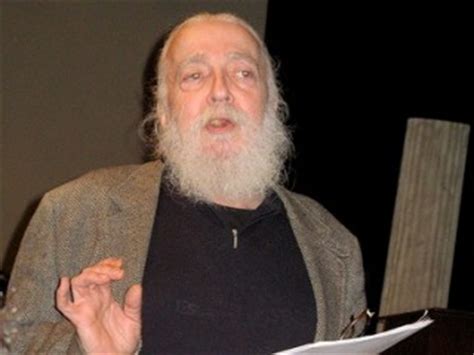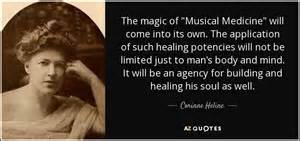A Quote by Friedrich Nietzsche
In short, then, the religious cult is based upon the representations of sorcery between man and man, and the sorcerer is older than the priest.
Related Quotes
The priest therefore saw what the anchorite could not. That God needs no witness. Neither to himself nor against. The truth is rather that if there were no God then there could be no witness for there could be no identity to the world but only each man's opinion of it. The priest saw that there is no man who is elect because there is no man who is not. To God every man is a heretic.
LAUGHTER is the very essence of religion. Seriousness is never religious, cannot be religious. Seriousness is of the ego, part of the very disease. Laughter is egolessness. Yes, there is a difference between when you laugh and when a religious man laughs. The difference is that you laugh always about others - the religious man laughs at himself, or at the whole ridiculousness of man's being. Religion cannot be anything other than a celebration of life.
I think marriage is between a man and a woman. I think we're all created equal in God's eyes, I think we need to respect and love those we disagree with. I think we can have religious liberty without discrimination. My views on marriage aren't evolving with the polls. It's based on my faith, I think it should remain between a man and a woman.
Sorcery breaks no law of nature because there is no Natural Law, only the spontaneity of natura naturans, the tao. Sorcery violates laws which seek to chain this flow– priests, kings, hierophants, mystics, scientists & shopkeepers all brand the sorcerer enemy for threatening the power of their charade, the tensile strength of their illusory web.
In a room sit three great men, a king, a priest, and a rich man with his gold. Between them stands a sellsword, a little man of common birth and no great mind. Each of the great ones bids him slay the other two. ‘Do it,’ says the king, ‘for I am your lawful ruler.’ ‘Do it,’ says the priest, ‘for I command you in the names of the gods.’ ‘Do it,’ says the rich man, ‘and all this gold shall be yours.’ So tell me—who lives and who dies?
As to the Christian system of faith, it appears to me as a species of Atheism — a sort of religious denial of God. It professes to believe in a man rather than in God. It is a compound made up chiefly of Manism with but little Deism, and is as near to Atheism as twilight is to darkness. It introduces between man and his Maker an opaque body, which it calls a Redeemer, as the moon introduces her opaque self between the earth and the sun, and it produces by this means a religious, or an irreligious, eclipse of light. It has put the whole orbit of reason into shade.
The Medicine Man occupied the honored role of priest and physician to his tribe. They understood that healing was done by the intercession of celestial spirits. Music was used as the bridge between these planes. Thus we see why music was religious in nature, and music was looked upon as a sacred art.
The discipline of programming is most like sorcery. Both use precise language to instruct inanimate objects to do our bidding. Small mistakes in programs or spells can lead to completely unforseen behavior: e.g., see the story, "The Sorcerer's Apprentice". Neither study is easy: "...her [Galinda's] early appetite for sorcery had waned once she'd heard what a grind it was to learn spells and, worse, to understand them." from the book "Wicked" by G. Maguire.
A young apprentice applied to a master carpenter for a job. The older man asked him, "Do you know your trade?" "Yes, sir!" the young man replied proudly. "Have you ever made a mistake?" the older man inquired. "No, sir!" the young man answered, feeling certain he would get the job. "Then there's no way I'm going to hire you," said the master carpenter, "because when you make one, you won't know how to fix it.
The Paleolithic hunters who painted the unsurpassed animal murals on the ceiling of the cave at Altamira had only rudimentary tools. Art is older than production for use, and play older than work. Man was shaped less by what he had to do than by what he did in playful moments. It is the child in man that is the source of his uniqueness and creativeness, and the playground is the optimal milieu for the unfolding of his capacities.










































